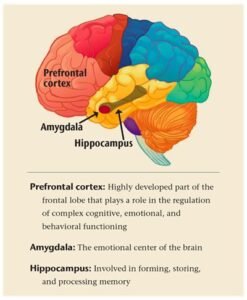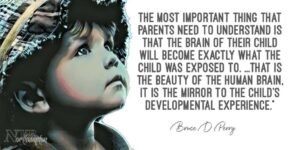A recent news report about a teenager leaving home due to excessive parental scolding for studies has raised an important question: What happens to a child’s brain when they are constantly criticized?

Neuroscience shows that frequent scolding activates the amygdala, the brain’s fear center, leading to heightened stress levels. Chronic stress can shrink the hippocampus, affecting memory and learning, while overactivating the prefrontal cortex, which regulates emotions. Studies reveal that children exposed to harsh parenting are at a higher risk of anxiety, depression, and self-esteem issues.
A 2023 study from Harvard University found that children who frequently experience verbal aggression from parents exhibit brain activity similar to those exposed to physical abuse. Another study by the American Psychological Association reported that 62% of children subjected to constant yelling struggle with emotional regulation in adulthood.
Constant criticism doesn’t just affect emotional well-being, it also impacts social skills. Children raised in high-stress environments may develop difficulties in forming healthy relationships and trusting others. Over time, these struggles can manifest in academic performance and professional settings, limiting their potential for success.
So, what’s the solution?
We need to work on providing healthy and congenial environment to the children for their proper all round development.
Reframe your words, replace criticism with constructive conversations. Instead of “Why can’t you ever listen?” try “Let’s figure this out together.” Creating a safe emotional space fosters trust, resilience, and stronger parent-child bonds.

It’s essential for parents to practice mindful communication. Using positive reinforcement, active listening, and emotional validation can significantly improve a child’s self-worth and confidence. Simple acts of empathy and patience can transform a child’s outlook on life and strengthen the parent-child connection.
Parenting is tough, but emotional safety is the foundation of a child’s well-being. Let’s break the cycle of fear-based parenting and build homes filled with understanding and support.
#Parenting #ChildDevelopment #MentalHealth #PositiveParenting











